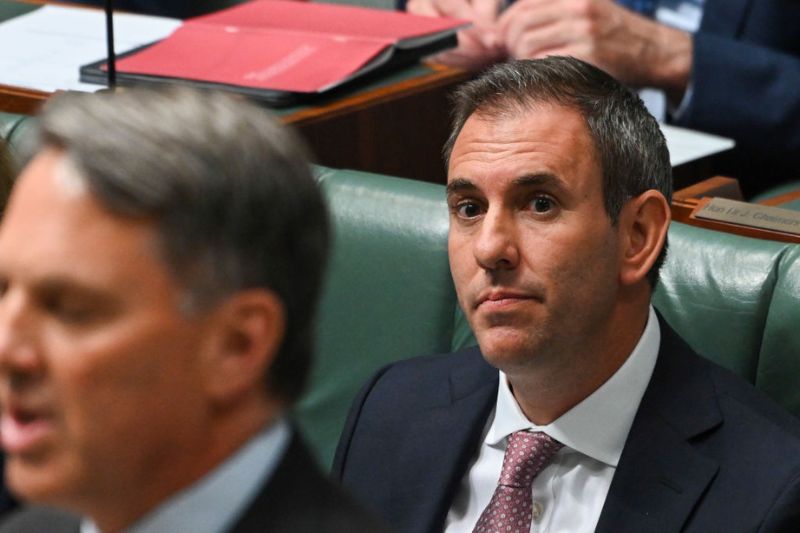Jim Chalmers’ second budget marks the moment the federal Labor government takes full ownership of the national economy. Of course, Labor has been in power for a year and has already handed down its first economic statement last October. But that document was largely an audit of federal finances combined with a series of measures to begin implementing the government’s election promises.

This budget shapes as a more ambitious document and a more authentically Labor one, too. Chalmers is seeking to look after those who are less well-off, while carefully balancing that against the need to not spend too much and encourage the Reserve Bank to implement further rate rises.
Already, we know next Tuesday’s document will include more money for Medicare, for Defence spending, for Australia’s national cultural institutions, targeted energy bill assistance and that an increase in the base rate (currently $49.50 per day) of the JobSeeker payment for over 55s is possible, as is an increase in rent assistance.
There is also the possibility of a rise in the eligibility age for the single parent payment, from eight years old to 13 or 14 years old – reversing a decision the Gillard government took that forced single parents onto the dole when their child turned eight – but it’s unlikely the change will be fully reversed.
There is even a chance, according to some reputable economists, the government could hand down a surplus – the first for 15 years in Australia, and the first since 1989 for Labor – off the back of rising tax revenue and high commodity prices.
Chalmers has been careful to talk down that prospect but if he lands it – even though it is likely to only be for one year – this will bolster Labor’s economic credentials and firewall it from criticism from the opposition about the party’s economic management, given the last Liberal treasurer to hand down a surplus was Peter Costello.
Handing down a surplus would also increase pressure to provide assistance for those who will miss out this coming budget night and to deliver a budget next year that doubles down on the party’s commitment to helping those who need it most – and it will be easier for Labor to do this in the future if it banks a surplus this year.
'Tuesday’s budget will address not just what Labor inherited but how it plans to address the challenges that lie ahead.'
The treasurer’s approach to handling the pre-budget roll out of announcements has been notable too. Chalmers has gone out of his way to ensure portfolio ministers such as Home Affairs’ Clare O’Neil, Mark Butler in Health, the NIDS minister Bill Shorten and Social Services minister Amanda Rishworth have been front and centre.
This has been a marked departure from the approach of some of his predecessors in the portfolio and has been a deliberate strategy designed to share time in the limelight.
It’s also an approach in keeping with Anthony Albanese’s approach to the prime ministership, in which he has sought to empower ministers to run their portfolios, rather than micromanaging them.
For months the Coalition has been trying to frame Labor as responsible for rising power prices, higher cost of living pressures, real wages not growing and more.
Shadow treasurer Angus Taylor is trying to pre-emptively frame the budget by hammering the point that 'inflation comes from Canberra'.
You can expect to hear him repeating this line over and over again in the months to come.
The opposition has even blamed the government for an up-to two year delay on the Snowy Hydro expansion project, conveniently ignoring that a tunnel boring machine is stuck 70 metres underground in soft mud, and that COVID-19 and problems with contractors have played a part.
But behind closed doors, party strategists from both sides acknowledge that Australians are not blaming Labor – at least not yet – for their mounting economic woes.
Voters realise, for example, that there is a war in Ukraine placing upwards pressure on energy prices, that COVID shut our borders and upended ordinary business for a couple of years, that the Reserve Bank sets interest rates and more.
This is the context for Chalmers’ second budget.
From Tuesday, it will be harder for Labor to blame its predecessors for the economic settings they inherited or for the ongoing cost of living pressures people are feeling each day.
The Reserve Bank has estimated that 800,000 people will come off fixed rate mortgages by the end of the year. As that happens and more households see a significant jump in either the amount they pay on their mortgage, or for their rent, the Morrison government will be ever more distant in the rear-view mirror.
Tuesday’s budget will address not just what Labor inherited but how it plans to address the challenges that lie ahead.
James Massola is National Affairs editor for The Age and the Sydney Morning Herald, based in Canberra. He has previously been South-East Asia Correspondent, based in Jakarta, and Chief Political Correspondent in Canberra. He has also worked for the Canberra Times, the Australian, the Australian Financial Review, as assistant editor of Eureka Street and is a regular commentator on ABC radio and TV. He is also the author ofThe Great Cave Rescue about the Thai boys football team.
Main image: Treasurer Jim Chalmers during Question Time in the House of Representatives in Canberra, Australia. (Martin Ollman/Getty Images)